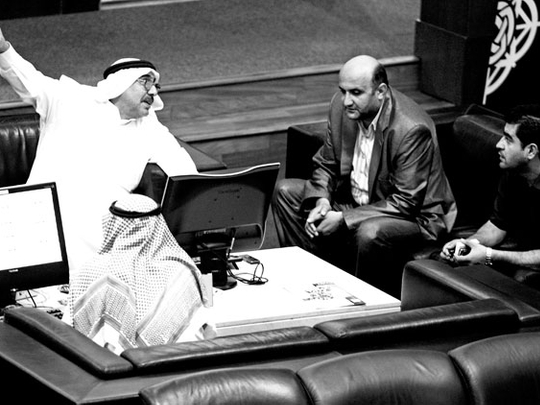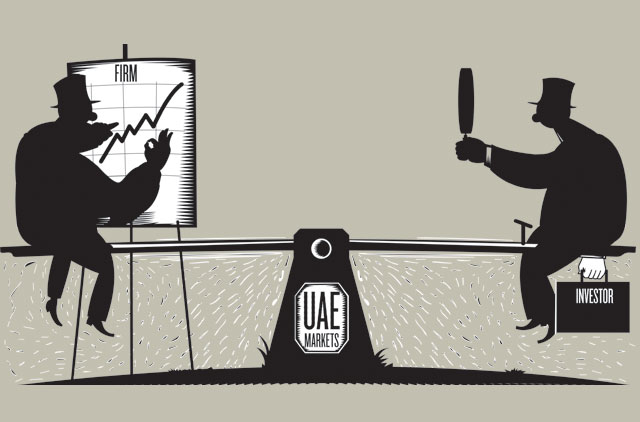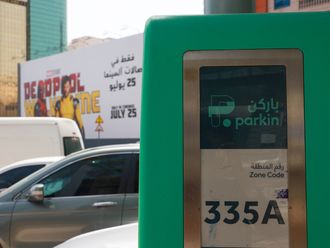
Dubai: Local investors have been left bemused in recent months as UAE-listed firms make sharp movements up and down the stock market for no apparent reason.
As a result, the much-bemoaned issue of a lack of transparency has once again come into sharp focus as traders question whether both the market regulator — the Securities and Commodities Authority (SCA) — and public companies are fulfilling their financial disclosure requirements.
In one of the most eye-catching instances, construction firm Arabtec Holding's share price jumped more than 128 per cent in the first two months of the year on unsubstantiated rumours, including speculation the company is on the verge of winning several key infrastructure contracts.
The firm's chief financial officer, Ziad Makhzoumi, told Gulf News last month the stock surge was purely a result of market conditions and, in particular, an increase in trading volumes. But it has since emerged the intense buying interest was driven by Aabar Investments, an Abu Dhabi-based sovereign wealth fund, increasing its stake in the builder.
The Arabtec situation is not an isolated case with numerous other listed companies witnessing an influx of cash. Penny stocks — including Tabreed, Deyaar and Dubai Investments — have been among the main beneficiaries of the recent bull-run despite an absence of solid information, and analysts say a lack of transparency in UAE markets has long been a contentious issue for local traders.
"Investors have exper-ienced a long period of questioning certain things and this has affected trust and decision making," said Husam Hourani, managing partner at the law firm Al Tamimi and Company.
"The issue of improved transparency has been a concern for some time and it has been brought to the attention of the SCA, the Dubai Financial Market (DFM) and the Abu Dhabi Securities Exchange (ADX). One demand they make of listed companies is a clear disclosure of important information," he added.
Hourani says the SCA is trying to apply more scrutiny to the market while trying to balance transparency with the interests of companies and the confidentiality of information.
Future planning
"We have to look at what cannot be disclosed as it may harm the company's future planning and strategic thinking; we cannot go from one extreme to another," he said. "This balancing act between investors and companies is not an easy position to take; investors always want more but there has to be a balance. Some companies are asking why particular information is required such as ‘how much was paid for that particular asset', as they believe such disclosure is not good for their market position," he added.
More recently, questions have been asked over the rising share price of Eshraq Properties, which last month also announced a generous dividend of six fils per share despite making a net loss of Dh1.2 million from the date of its listing — July 7, 2011 — to December 31.
It is not just stocks attracting buying interest, however, that is a cause for concern. Some listed companies have witnessed spates of intense selling pressure in recent months.
For example, energy firm Dana Gas tumbled to its lowest close on record earlier this year on concern the company would be unable to repay a $1 billion (Dh3.67 billion) Islamic bond maturing in October. The slide only subsided when Dana issued a statement saying it would be able to meet its debt obligations.
The UAE missed out on an upgrade to emerging market status in index compiler MSCI's (Morgan Stanley Capital International) latest classification review in Dec-ember to allow investors to get used to a new settlement system known as delivery versus payment (DvP). However, MSCI is also continuing to review progress at markets in Dubai, Abu Dhabi and Doha in relation to transparency and foreign investment accessibility.
"It is in everyone's interest that UAE markets make the step up from frontier to emerging market status to capture a greater proportion of international investment," said Jon Breach, CEO of BDO Corporate Finance Middle East. "Transparency is a key ingredient for this so there should be more push from the companies as well as pull from the regulators," he added.
Breach says while most companies in the UAE are conforming with the strict letter of the disclosure requirements set by regulators, leading companies actively seek to set a higher standard by their actions. "Evidence shows that high levels of transparency and effective investor relations increase both trust and market liquidity — and therefore have a positive impact on the share price. The reverse is also true. It is not just good news that should travel quickly; boards must remember that bad news should travel quickly too or the consequences will be worse," he said.
"For any company considering an IPO [initial public offering], getting the story right, and widely known, benefits both pricing and investor appetite. For existing listed companies, there may be a future need to raise new capital to grow organically or by acquisition, and continual timely interaction with the market will build trust and support for these strategies," he added.
Upturn in fortunes
UAE markets have experienced a sharp upturn in fortunes this year. The DFM, in particular, embarked on a strong bull-rally, gaining 30 per cent in just over two months before last week's sell-off. However, dozens of local brokerages have either closed or suspended operations in the last year or so as client fees dried up and volumes dwindled.
"Over the past few years, local markets have not been performing well, which has led to fewer brokerages and analysts. This is directly a result of low turnover and low volumes; it is not good for the flow of analytical information about the marketplace," said Nasser Saeedi, executive director of the Hawkamah Institute for Corporate Governance at the Dubai International Financial Centre.
"I think there has been an improvement in disclosure with investors receiving more information now than they did two or three years ago. However, we need more credit analysts; people who are following the market and its activities on a professional basis," he added.
Saeedi says retail investors constitute the bulk of the UAE markets, adding they do not have the time to analyse company fundamentals. "There is a major difference between retail investors and institutional investors in that the latter are much better informed. They have the ability and time to read reports and compare various companies across different sectors," he said.
"Many things contribute to stock market movements including geo-strategic issues, the macro-economic backdrop — particularly the situation in the Eurozone — and issues of liquidity. We have some idea of the fundamentals that affect market performance as a whole but it is difficult to pin down what moves any particular stock price," he added.
The SCA has suspended listed companies in the past for failing to disclose enough information about their financial situation. For example, Islamic mortgage provider Tamweel was suspended from the DFM in 2008 when talks on a merger with its largest competitor, Amlak Finance, failed to materialise.
Some investors believe the SCA must do more to improve transparency in the UAE but Hourani says he has never seen the organisation so committed to improving the disclosure of information as in the past few months.
"Investors always demand more transparency but SCA have become aware of their concerns and are taking action; it is not always clear to the public initially and it takes a while for them to build up trust," he said.
"Some companies are still trying to adjust to the new requirements for disclosure. Some have completed more than others but rest assured the SCA, DFM and ADX will take a very serious stance against those who have not complied. The SCA has issued a series of draft regulations including short selling and different structures that are in line with international standards; something that we have never had before," he added.
Rising prominence
Poor transparency was one of the key causes of the global financial crisis, according to a senior official at the Securities and Commodities Authority (SCA), the UAE's market regulator.
Ebrahim Al Za'abi, the SCA's deputy CEO for legal affairs, issuance and research, says the issue of corporate governance has gained greater prominence in recent years as a result of the current macro-economic backdrop.
"The cause of the latest crisis was blamed on financial corruption and mismanagement due to insufficient disclosure and transparency," Al Za'abi said. "This issue [transparency] has gained greater prominence in most countries over the last few years.
"The crisis made investors suffer heavy losses, forcing many to look for companies that uphold and strictly implement the rules of corporate governance. This, in turn, increased the level of attention given to the issue, making it a basic principle on which economic units must be built," he added.
The SCA can take various forms of action if a company or individual is deemed to be flouting disclosure rules including issuing warning letters and fines or suspending securities. Individuals can also be subject to fines or imprisonment. "Disclosure and transparency regarding financial information represents one of the major principles of corporate governance," Al Za'abi said.
"Similarly, disclosure is very important for public joint stock companies in order to achieve law and order on the markets. Disclosure must be made at the right time and must reflect the reality of a company's performance. It must be equitably shared among all stakeholders and must be made on all the works of the company, including its financial situation, performance and ownership.
According to Al Za'abi, the correct implementation of corporate governance rules leads to a high level of disclosure and transparency, which, in turn, improves market efficiency and boosts the confidence of clients in the market.
"Corporate governance is one of the most significant issues regarding companies and securities markets at all levels. Furthermore, it is the most potent factor in terms of attracting foreign investment," he said.













